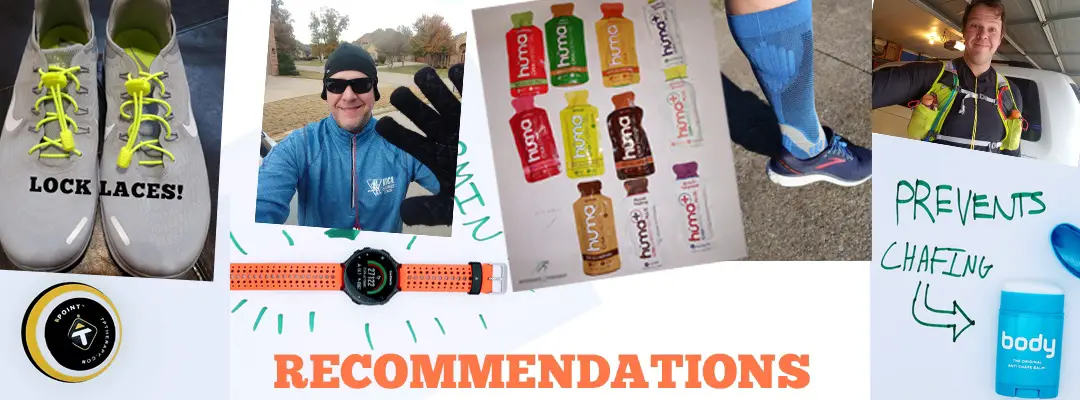When we were kids and running around without a clue of what time it was or what we had to do next, we somehow were forced to transition into the adult world and had more responsibilities thrown at us. We come with more excuses to let our needs slip by without a second thought. Next time you feel your desire to run veer off track, remember these six ways to help prevent you from fizzling out.
Where did my zone go?
If you feel like I do, you can remember that when you were a kid, outside school. Can you recall when you wanted to do something, like build a fort? You didn’t think about when you had to make dinner, or when you had to pick up the kids; you just let your imagination flow and zone out at the moment.
As adults, we all look for that moment where we just turn off outside distraction and zone in and focus with razor-sharp precision on the task at hand.
Adults have a much more tough time finding those, flow or zone states partially because we are so busy. In fact, on our daily routine if you wrote down everything you did for one solid week every hour you would be surprised at how much time was wasted just thinking about what you need to get done.
Schedule it
As kids, we didn’t have to worry about this kind of stuff. At some point as a productive adult, we started to have to use a calendar or, at the bare minimum, make some list to keep your mind and energy focused in the right direction.
To run a 10K, half marathon, or marathon, you must schedule your running into your adult life. Scheduling your runs, if you’re serious about running, needs to be a priority somewhere in your weekly schedule.
Rest
I’m not talking about running every day. In fact, running every day is a possible way to bring on unnecessary injuries quickly especially if you aren’t in your prime or an elite runner. Are there runners that run every day? Yes. Is it possible to run every day without injury? Again, yes!
Impact sport
As runners, we must remember two things. First of all, running is an impact sport that requires both of your feet to be off the ground at the same time. Secondly, each year that we run are abilities/fitness decline (even if just by a slight hair). Are there cases where people become faster as they age? Yes! I’m an example! However (A BIG HOWEVER), I didn’t run during my prime years which were 18 – early 40s. My body has been spared the impact. Again this is all relative and depends primarily on the individual athlete’s physical fitness level regardless of age.
In other words, for each additional day and mile, you jog beyond four days, your body becomes more prone to injury. Again, this depends on your physical fitness level and the ability of your body to repair and recover relatively quickly. At a minimum, I recommend resting at least one day from running. I’m saying that you should take a break from running in the form of some other type of exercise such as walking, cycling, ply metrics (jumping), yoga, kettlebell workouts, etc.
Write down your schedule
When you write down your schedule on a planner or app, you are creating a habit of scheduling your runs, which is a fantastic way to jump-start the habit before acting on the habit. Try to remember to write down your running schedule daily if needed to help it stick as an important habit.
Scheduling your daily activities other than just running at least the night before helps to ensure that you are laser-focused on what you wish to accomplish the next day.
Make a list
Some people’s list might be so long it would make our head spin. I would focus on a bare minimum of at least three goals that you wish to accomplish the next day. Don’t exceed five big goals. I normally choose one activity for exercise, one to three for work productivity, and one for personal relationships.
Make it a habit
Depending on how far along you are in your running career, it determines how disciplined you are with your running habits. I’ve been running for close to two years now and, I no longer need to use running as one of my top three goals to accomplish the next day.
Conclusion
One last thing on running, if you’re not getting paid to run for a living (as a professional), then your running shouldn’t completely dictate your life.
Try to stick to a running schedule as much as humanly possible, however, don’t forget that if your partner or spouse isn’t a runner, then sometimes it’s hard for them to understand a runner’s training schedule – truly. All I’m saying is don’t let your running schedule cripple other parts of your life.
Related: The Most Common Running Excuses And How To Avoid Them!
| Help support me and subscribe to my YouTube channel. YouTube video - 30 ways to make your runs less painful! Coach Scott's Credentials:
|
To sign up for a FREE half marathon training schedule, log sheet, and pace predictor CLICK HERE.

Recommended gear for runners
Connect with me:
| facebook.com/BeginnerToFinisher/ |
